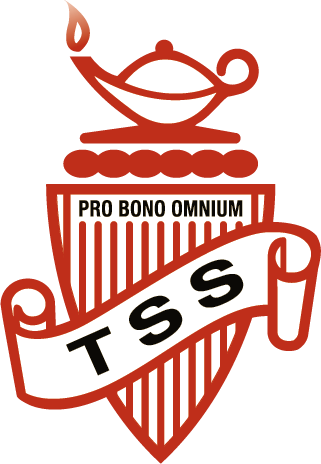Code of Conduct
Code of Conduct - Updated June 2024
Statement of Purpose
- Uphold a safe, inclusive, equitable, welcoming, nurturing, and healthy school environment
- Promote clear behavioural expectations of respectful and responsible citizenship that lead to a culture of safety, caring and respect amongst everyone in the school and programs and at all school-events and activities
- Inform students and parents that the School Code of Conduct applies at school, during school-organized or sponsored activities, on school buses, and any behaviour even if outside of school or school hours, (including on-line behaviour), that negatively impacts the safe, caring, or orderly environment of the school, and/or student learning
TITANS
Thoughtful -- We treat ourselves and each other with kindness and compassion.
We will:
- Be courteous and considerate.
- Be helpful and respectful.
- Listen to and learn from one another.
Inquisitive -- We are curious and want to learn.
We will:
- Participate and contribute to class activities.
- Challenge assumptions by asking questions.
- Be creative and take risks when generating new ideas.
Truthful -- We act with integrity, honesty and pride.
We will:
- Be our genuine selves.
- Maintain academic integrity by creating and submitting original work.
Accountable -- We take responsibility for our words and actions.
We will:
- Set goals, plan and work hard to achieve them.
- Be punctual and engaged.
- Fulfill commitments to ourselves and our community.
nə́c̓aʔmat ct – We are one.
We will:
- Embrace differences and appreciate the unique gifts of everyone.
- Support and encourage one another.
- Focus on equity.
Safe -- We ensure the emotional and physical well-being of all.
We will:
- Seek help and offer help to others.
- Stand up to racism and prejudices.
- Respect others’ physical space and belongings.
- Tell someone if we see harm done to people or things.
- Think about the consequences before we act and react.
Conduct Expectations
Acceptable Conduct
- Respecting self, others, and the school
- Contributing to a safe, caring, positive, inclusive, and peaceful environment
- Seeking to prevent violence and potentially violent situations, and demonstrating their social responsibility by reporting such situations
- We expect students to conduct themselves in a manner that:
- promotes their active learning and that of others
- demonstrates respect for themselves and others or their property
- indicates a tolerance for different views, customs, cultures, religions, genders, values, abilities, and individualities
- ensures safety for themselves and others
- develops a sense of community and pride in Templeton and its environment
- Unacceptable Conduct
“Students shall not discriminate against others on the basis of the race, religion, colour, ancestry, place of origin, marital status, family status, age, sex or sexual orientation, gender identity/expression, or physical or mental disability, or for any other reason set out in the Human Rights Code of British Columbia, nor shall a student publish or display anything that would indicate an intention to discriminate against another, or expose them to contempt or ridicule, on the basis of any such grounds.”
- The following are examples of unacceptable behavior and is no way a definitive list. Bullying, harassment and intimidation including those in the cyber realm, any action that creates unsafe conditions, inhibiting the learning of others and theft.
- Racism and discrimination will not be tolerated in our school.
- Retaliation Prevention
- All reasonable steps will be taken to prevent retaliation against a student who has made a complaint of a breach of a code of conduct.
Consequences
Disciplinary action, wherever possible, is restorative rather than merely punitive. The school will treat seriously any behaviour that discriminates based on race, colour, ancestry, place of origin, religion, marital status, physical or mental disability, sex, or sexual orientation.
Repetitive or severe unacceptable behaviour may result in increased severity of subsequent disciplinary action. The age and maturity of students are considered when determining appropriate consequences.
Special considerations may apply to students with special/diverse needs if these students are unable to comply with a code of conduct due to having a disability/challenge of an intellectual, physical, sensory, emotional, or behavioural nature.
The principal or designate has a responsibility to inform other parties of serious breaches of the code of conduct. These parties may include: staff, parent(s) of student offender(s), parent(s) of student victim(s), school district officials, police and/or other agencies, as required by law and/or all parents.
- Rising Expectations
- Students are expected to learn and mature as they move through successive grades, and as such the expectations progress towards increasing personal responsibility and self-discipline, as well as increasing consequences for inappropriate conduct/unacceptable behavior.
- Suspensions
In accordance with the School Act, Sec. 85 (2) (ii) and (d), the Board authorizes the principal or designate of any school in the district to suspend a student from attendance at school for up to five days.
Suspensions may be for the following reasons:
a) because a student is willfully and repeatedly disrespectful to a teacher or to any other employee of the Board carrying out responsibilities approved by the Board;
b) because the behaviour of the student breaches the District Code of Conduct or other policy and/or has a harmful effect on others or the learning environment of the school;
c) because the student has failed to comply with the School Code of Conduct.
Suspensions over five days are made in consultation with the appropriate Director of Instruction as per District Student Code of Conduct, AP 350. As per AP 350 7.7 an educational program must be provided.

